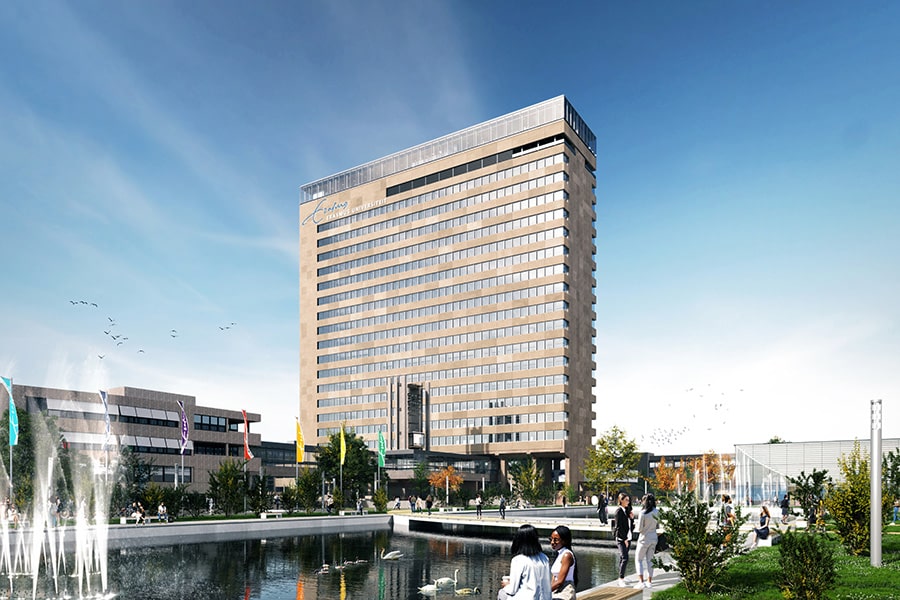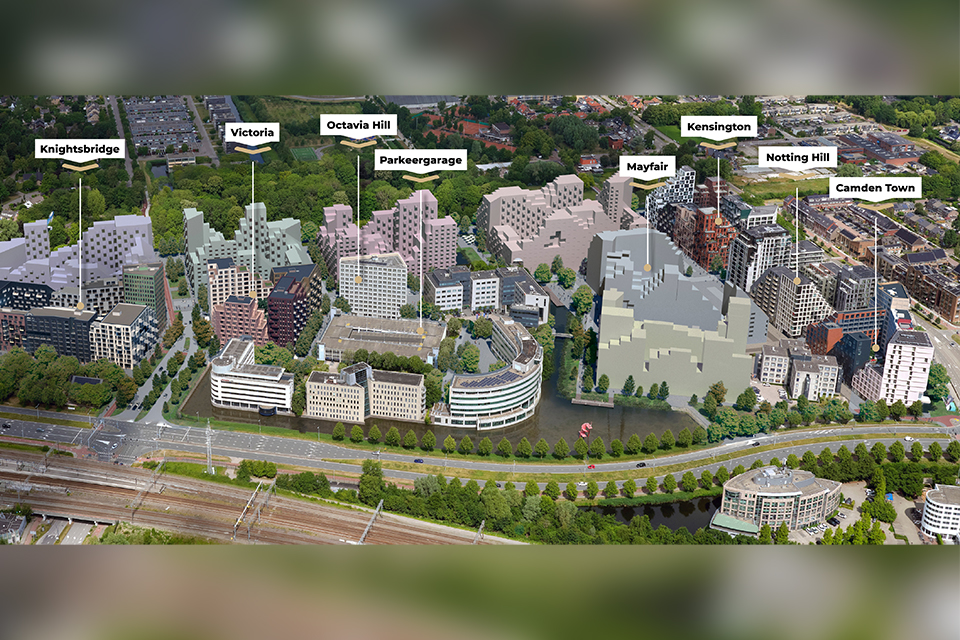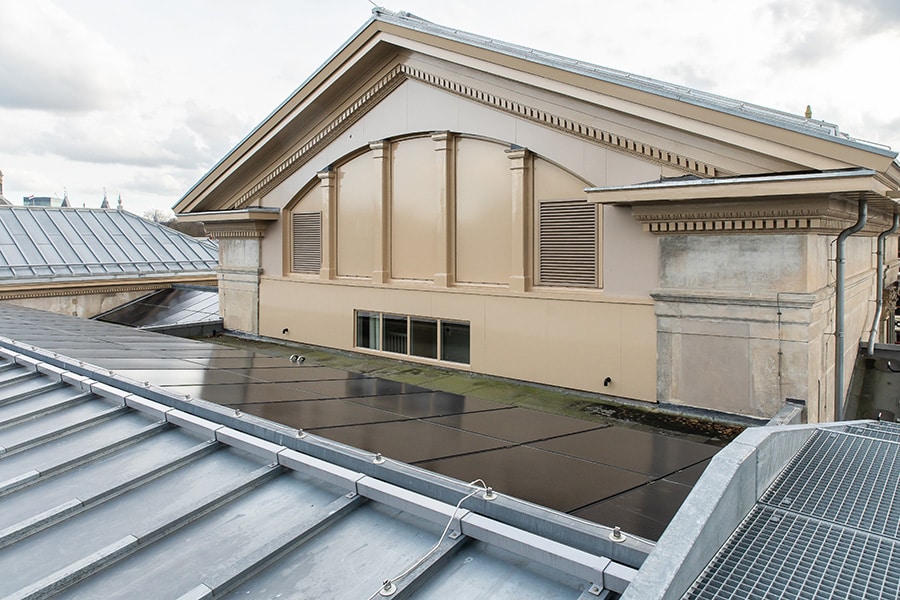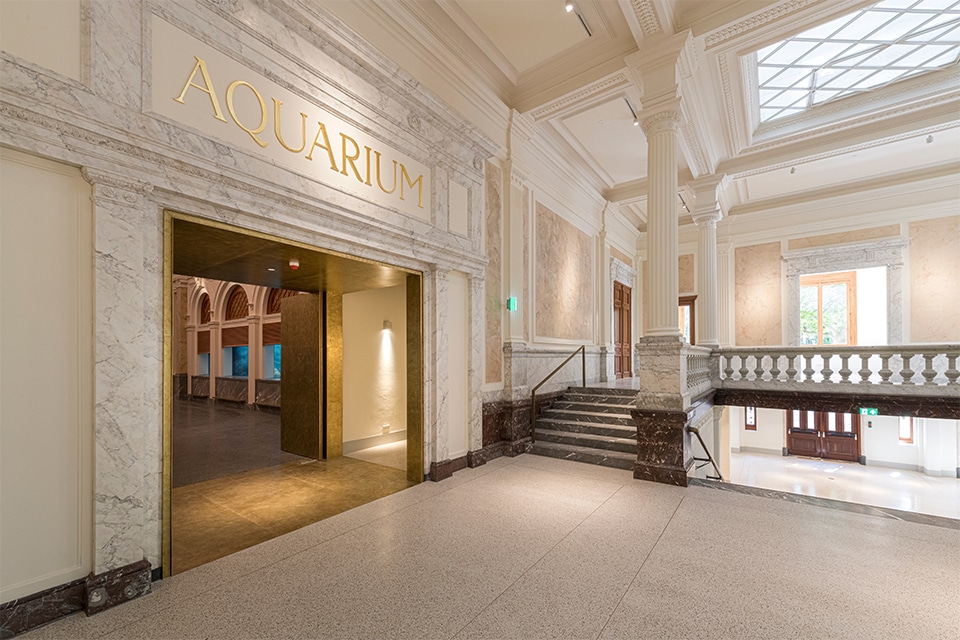
World first: Factory for recycling sandwich panels with PU insulation core
InSus is building a new factory in Duiven that can recycle sandwich panels with a PU insulation core (PIR and PUR) using a unique process and produce new PU insulation boards from them. A world first. Currently, all PU material ends up in landfills, with disastrous consequences. The new installation will also capture the CFCs (harmful ozone gases) present in the old insulation, reducing no less than 0.8% of the total Dutch CO2 emissions. A giga-saving.

"A PU insulation core in sandwich panels gives a much better insulation value than stone wool," begins Harry van Dam, director of InSus. "This is due to the fact that PU insulation is filled with gas instead of air. Gas is a much better insulator. Until 2004, mainly harmful CFCs (ozone gases) were used for this, nowadays this is done with pentane. When you don't capture the gases at the end of the panel life, but take the panels to the landfill or put them through the shredder, the gases are released. And that has a huge environmental impact. For CFCs, the equivalent of more than 1 ton of CO2 per m2 of insulation panel!" Reason for some "smart minds" to get serious about this.

Circular
Five years ago, the shareholders of InSus started extensive research into recycling sandwich panels with a PU insulation core. "That led to the installation that is now being built in Duiven," Van Dam says proudly. "This allows us to recycle both the steel or aluminum of the sandwich panels and the PU fraction of the insulation core, provided it is 'pure' enough. The latter unleashes a true revolution. Incidentally, in all cases we capture the CFC propellants and render them harmless, regardless of whether the PU fraction is still of sufficient quality to be reused in new PU insulation boards. These CFC propellants are converted by a partner into acids for use in other applications and products. The new PU sheets we make at our plant from existing, pure PU fractions are incidentally fully circular and recyclable again for 100% at end of life. The insulation produced by InSus does not degrade during each cycle. This is how we close the chain."

'Eating' own building
The new plant will soon be built in InSus' new premises in Duiven. "The building is now under construction, where we only use materials with a low environmental impact that are fully recyclable as far as possible. Obviously including the sandwich panels for roof and facade. At a time when we would be demolishing our building in the distant future, it is these panels that are the last to go through our recycling plant and be converted into new insulation. We can completely 'eat' our building," Van Dam says with a laugh. "Many energy measures have also been implemented. Among other things, the plant is all-electric (with no gas connection) with solar panels on the roof and heat recovery from the process is used."
InSus' new building will be completed this year. The recycling plant is expected to begin operation in early 2022. The project was carried out with a subsidy from the Ministry of Economic Affairs, the so-called Top Sector Energy Subsidy Scheme, implemented by the Netherlands Enterprise Agency.
Sandwich panels with 40% less environmental impact
The new building of InSus in Duiven will be clad with FALK sandwich panels with a CradleCore® insulation core. These are the world's first sandwich panels to be covered by a take-back guarantee and thus guarantee recycling. Currently, the PIR insulation core still ends up in landfills. The application of these FALK sandwich panels ensures a 40% lower environmental impact.
"InSus is a sister company of FALK," says Patrick van Haaften, marketing manager at FALK Bouwsystemen. "Together with various partners, we have been researching the recycling of PIR for years, and we are putting our money where our mouth is with InSus. From the end of this year, we will be able to make a new insulation core from an existing PIR insulation core. This will reduce the environmental impact of an insulated facade by more than 40% compared to the market average. This is also reflected in the National Environmental Database and thus factually substantiated. For the facade, we supply our blind-fixed sandwich panel FALK 1060 WB in various color combinations, totaling some 12,000 m2.
In addition to the facade, the roof of InSus will also be fitted with FALK sandwich panels, in the 1100 TR3+ version. "A sloping roof was deliberately chosen for sustainability reasons," says Van Haaften. "Quite unusual, given the substantial area of 26,500 m2. The big advantage is that the sandwich panels directly form the waterproofing layer and no bitumen or PVC is required. Moreover, the solar panels can be anchored directly to the panels. A win-win."




